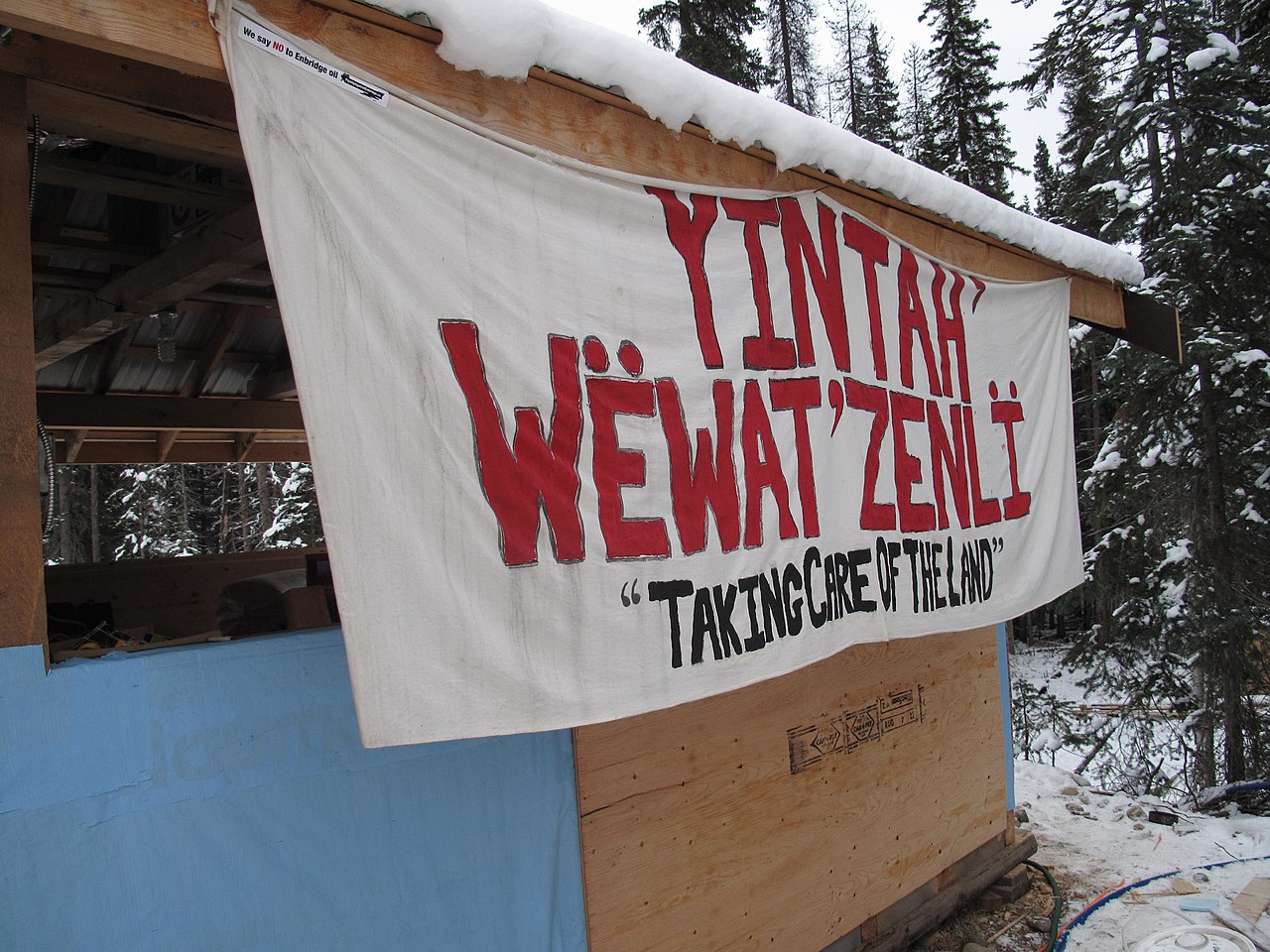
It was January 8 that Trent students first stood in solidarity with the Wet’suwet’en sovereign Nation, taking up signage and traditional songs as they blocked off George street North and McDonnell to bring awareness to the community; to let the Wet’suwet’en nation know that we stood in solidarity with them as the Unist’ot’en camp was illegally invaded by the RCMP.
Yet the RCMP never seems to change — a federally run entity that was originally brought into existence to police Indigenous peoples are still at it. They continue to harass and force the Wet’suwet’en out of their territory, most recently illegally destroying traplines that the Wet’suwet’en nation rely on as their main source of food, clothing, and livelihood.
A little over a month later, there is still an active need for solidarity, as represented by the QTBIPOC (Queer, Trans, Black, Indigenous, People of Colour) party that took place on February 1. Working with a $5 entry fee (or pay what you can), attendees were able to look forward to the donated space of The Sapphire Room, as well as a silent auction taking place during the four-hour event. With donated items such as art pieces by local Trent student and Firekeeper Ceilidh Isadore and a gift basket from Peterborough’s own You’re Welcome, as well as a multitude of other items, the event was a guaranteed success.
Yet who put the gears into motion? Speaking with the very same Shawna Redskye who organized the first Peterborough-Nogojiwanong protest a month ago sheds light on this. The idea of the QTBIPOC party was brought to creation from the brilliant minds of a group of Trent students. Almost a week after the first protest, Redskye as well as Angeni Lovelady, Ceilidh Isadore, Jessica Frappier, Juliana Lesage, and Sierra Lianga gathered to brainstorm potential ways to help assist the Unist’ot’en’s growing legal fund. Thus the party was born, and planning was underway.
But why? Some Trent students are confused — Why should we help? What we could possibly do?
So what made Shawna Redskye decide something needed to be done?
“All across Turtle Island, Indigenous and non-Indigenous folks have been rallying through various solidarity efforts with the Wet’suwet’en who continue to protect their ancestral lands, waters, and territory. Many folks in the Nogojiwanong-Peterborough community have been mobilizing with an understanding that this ongoing colonial violence against Indigenous peoples is systemic and we are not separate from our relations out West, the land or the water.”
With court dates approaching for those of the Wet’suwet’en facing legal charges — despite not being the one unlawfully invading unceded territory — Shawna was quite adamant that funds be raised in support.
“As the Canadian government, the RCMP, and the Coastal GasLink continue to violate Wet’suwet’en (and their own Canadian) law, the Wet’suwet’en are facing impending court dates and climbing legal fees. The Unist’ot’en are demanding a stop-work order on their territory and it is important that we let them know that we continue to stand with them how they need, and contributing to their legal funds as they navigate this colonial court system is crucial. Fundraising is also a wonderful way of bringing community together and educating.”
As the party started to wind down around 1 a.m., Juliana Lesage got the attention of the attendees to the QTBIPOC party. “I just wanted to say Chi Miigwetch,” she said, ending the night with thanks, expressing not only her gratitude, but the gratitude of the entire organizational team. Redskye had similar things to say in terms of the overwhelming support.
“Deep gratitude. It feels that the waves of colonial violence and grief are neverending, and I know how heavy that weight can feel, particularly to Indigenous folks trying to survive and thrive. Seeing the ways in which folks continue to show up how they do speaks to the incredible resilience of in all of our beings. It brings me hope to think that people are beginning to visualize a different way of existing, and it feels like we are learning how to cultivate strong communities around that,” Redskye explained.
Even now, a community has stood valiant, determined to not only let those land protectors at the Unist’ot’en checkpoint know that they are supported, but, ultimately, to tell Canada that as the red to the white on our flag, Indigenous peoples are a part of this nation. Why should their backyards, their traplines, their lives be torn up for a pipeline? Is Canada really going to show priority towards oil companies interests over the people of their nation?
